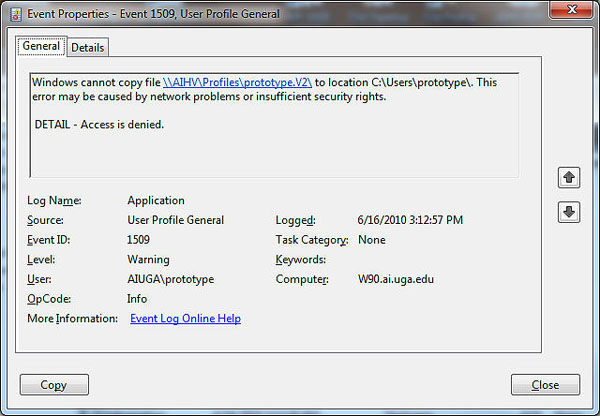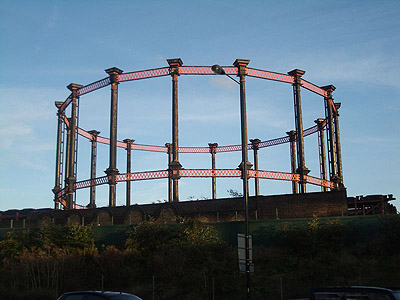 |
|
 |
2010
June
30
|
Mid-year checkpoint
We've made it halfway through 2010, and I'm going to close out the month early
by uploading the June 30 entry on June 28. Here are a few short notes.
How things go wrong, part 1: The distinction between "income affluent" (IA)
and "balance-sheet affluent" (BA) is useful; yuppies are the former, especially yuppies
who go bankrupt. Article here.
How things go wrong, part 2: Here
is a useful study of how a culture of rulebreaking can entrench itself.
I've seen things like this happen in the computer security field.
It often happens in business.
There are people who try to make it happen in every high school
and youth organization.
(Thanks to Jeff Duntemann for the link.)
Recommended:
Bell "Traveler" car compass.
I've just put these into two of our cars. They have adjustments to counteract the magnetic field
of the car, as well as another adjustment for the exact direction of the north magnetic pole.
Today, as I waited at a red light on Lumpkin Street, I could see my compass twitch from the
magnetic field of another car as it passed by.
Achieved:
The University of Georgia has moved 85,000 users to a new mail server.
With 35,000 students and 15,000 employes, how do they get 85,000 users?
I think they're suffering user bloat — accounts are created and
never cancelled, consuming resources forever.
Anyhow, Microsoft is now hosting e-mail for us — in Texas! —
and we are allowed (I think) 10 GB instead of 20 MB of storage. (Finally!)
All the old mail was copied over, with only one untoward result.
They copied all the mail 10 days ago, and then, during the changeover, copied all the new mail
(a much smaller batch). However, they didn't delete copies of the old mail that had disappeared from the
old server during its final ten days. In my case, that made 500 messages reappear because I had done
a really major clean-up during the interval. Fortunately it didn't take long to do it again.
Permanent link to this entry


|
2010
June
29
|
What if I don't pay this one?
A common computer programming mistake in the 1960s was to have computers send out
bills for $0.00 and demand payment, even claiming that it was past due.
Typically the problem was that a small rounding error, less than one cent, was
still present in the customer's balance. Or maybe the programmer just didn't
notice that zero is different from other numbers.

At first glance it would seem that they're
doing it again. Actually, this bill serves a purpose — it tells
me the account was completely paid off last month. But it's odd to talk about "paying" it.
And a couple of my credit cards get mysterious, unlabeled charges of $0.00 about once
a month when I download transactions in Quicken.
Permanent link to this entry


|
2010
June
27-28
|
How sheep go astray
Dr. Simms' sermon this morning (June 27) made an
interesting point about search algorithms and planning.
We've all heard of
going astray like sheep.
But why and how do sheep go astray?
Simple. They keep their heads down, moving from one bunch of grass to another without
any long-range planning or navigation.
People do the same thing, and even robots and computers...
Permanent link to this entry


|
2010
June
26
|
Kluge of the day:
How to make a nice-looking web page
with really simple plain HTML
In days of old, web pages were written in plain HTML, keeping everything as
simple as possible.
If you try that today, your web page won't look very good — it will be in a
default typeface that probably looks grungy, and it will not have margins at the
left and right.
The other day I needed to make a web page very quickly in plain HTML.
I'm about to show you how I did it.
Critics: I already know this isn't sophisticated. Its purpose
is to look reasonably good in the browser (even very old browsers), not to impress
HTML gurus. The HTML community seems to be unusually infested with
"language lawyers" who rush to tell you that you shouldn't do something
that works perfectly well because
a new way of doing it was invented last week and is now the standard.
The most improvised thing there is the row of symbols for margins.
I know it's improvised, and that you can easily specify table cell widths in pixels,
but it works.
To view the whole page that I made
(which is a cut-down version of one of our lab documentation
pages), click here.
The source code looks like this; feel free to copy it.
<html>
<head>
<title>Title Goes Here</title>
</head>
<body style="font-family:Tahoma,Verdana,sans-serif">
<table align="center">
<tr>
<td> </td>
<td>
<H1>Title Goes Here Again</H1>
text goes here, with <P>...</P> around paragraphs,
<H2>...</H2> around major headings, <HR/> where you want
a horizontal line, and so forth.
</td>
<td> </td>
</tr>
</table>
</body>
</html>
|
This super-simple format might be useful, not only for human beings in a hurry,
but also people starting to learn HTML and for web pages written by software.
Permanent link to this entry
More lunar colors

More lunar colors — same technique as the other day, recording video with my
5-inch telescope. This time you're looking at the crater Aristarchus, which has a
reputation for strange goings-on; it apparently has minerals that reflect light
very differently depending on the way sunlight is striking them.
Permanent link to this entry


|
2010
June
23-24
|
Colors of the moon

This shows that my DFK planetary camera has relatively little color noise or crossover.
You're looking at the moon — a region known as Sinus Iridum — and I've turned
up the color saturation to bring out subtle variations in the color of the surface.
This was taken by recording about 3500 frames of video with a 5-inch telescope and
aligning and stacking the best 3000 or so.
Permanent link to this entry


|
2010
June
21-22
|
Miscellany
Although administrators say no furloughs are planned, my contract (which I received and
signed today) says that up to 10 furlough days are possible.
(Remember, at this time last year there were not yet any definite plans to furlough us,
but they did it.)
I hope that clause doesn't become a permanent fixture.
Death by PowerPoint:
Click through and read it.
I especially deplore people who use PowerPoint as a prompter,
i.e., just to display their own list of reminders of what to talk about —
not comprehensible to the audience.
(Those are the people who will talk for 30 minutes from one slide that
says "Features and Benefits.")
People say I give good PowerPoints.
I do this by disregarding traditional PowerPoint culture.
I always make the slides completely understandable so that they stand on their own.
Many of the PowerPoint gurus say never to do that.
But then, a lot of people spend their time teaching each other
how to give bad presentations,
like Atlantans teaching each other how (not) to drive on freeways.
If you've always wanted an IBM 360-series computer of your own, check out
Sim390, and see how
little computer power it requires. The only operating system provided with it
is McGill University's MUSIC. But the price is right — free!
Permanent link to this entry


|
2010
June
20
|
Three disconcerting things and one welcome development
Disconcerting thing #1: The weather. The reason there hasn't been much
astrophotography here is not just that I'm hard at work on other things.
It's that we're having an endless series of partly cloudy days and late afternoon
thunderstorms. And, of course, a bumper crop of mosquitoes.
Disconcerting thing #2: A 1-watt laser being promoted as a dangerous toy.
Details here
and here.
One watt is 1000 times the usual power of a laser pointer.
Or is this a hoax or publicity stunt?
Disconcerting thing #3: The
University of Georgia rakes in the money
when students get Bank of America credit cards, even though abuse of credit cards by students
is a serious problem (and, nationally, has even led to suicides).
We found out about this because
new laws no
longer let them keep it secret.
In my opinion, except for well-supervised student loan programs,
it makes no sense to lend money to people who don't have an income.
Welcome development: Regulations
are about to kick in
to keep credit card companies from charging excessive penalties.
Penalties will now be capped at $25 or the amount of the violation, whichever is less.
Go $2 over the credit limit and they
can only hit you with a $2 fee. This is the end of the $44 trip to Starbucks.
Permanent link to this entry


|
2010
June
19
|
No more furloughs
Although I haven't actually received my 2010-11 academic year employment contract yet,
we've been assured that there won't be any more furloughs.
Recall that in 2010-11, we were furloughed (laid off) for 6 days to reduce the
University's expenses. This created a strange situation since there were days on which
we were forbidden to work for the University.
Permanent link to this entry


|
2010
June
18
|
System administration gets easier
At the Institute, we've been using Windows with roaming user profiles since 2001.
That is, we have it set up so you can sit down at any PC, log on, and get your own
desktop and files.
Over the years, Microsoft has gradually made this kind of setup easier to administer.
And today I had a pleasant surprise.
The default settings for newly created accounts traditionally come from a folder
called Default User on the domain controller. There is an intricate procedure
for copying a real user's profile to that location. It has to be done twice, once
for Windows 2000-2003-XP-2008 and once for Vista and Windows 7.
And you had to go through a pesky process of hunting down, and deleting,
unwanted user-specific information that might be in the profile.
Well, as I sat down to do it today, I was gratified to learn that
the
current recommendation is not to do it
(see also this
and especially
this).
There is still a roundabout way to do it via Sysprep, but normally,
you deliver a lot of settings via Group Policy (including some
that can be reset by the user), and Windows takes care of the defaults.
So I gleefully filled in the appropriate Group Policies and deleted the Default User folders
from sysvol (netlogon). (The OS still has its Default User folder in the original place, of course.)
Permanent link to this entry


|
2010
June
17
|
Is this Windows error message backwards?
Event 1509: "Windows cannot copy file A to location B. This error may be caused by network problems
or insufficient security rights."

I spent a long time troubleshooting this problem on one of our PCs at the lab and,
as best I could determine,
at the time, Windows was copying from C: to \\AIHV, not the other way around.
A roaming user was logging out.
I post this just in case somebody else is perplexed by the same thing.
Permanent link to this entry


|
2010
June
15-16
|
Miscellany
I've been advised that
gasometers are called "gasholders" in the U.S. as well as Great Britain.
Apparently "gasometer" is more a Continental term.
Some time back I wrote about the
Windows
U.S.-International keyboard layout, which makes it easy to type several foreign languages.
Now I learn that
you
can make your own keyboard layouts too, with Microsoft Keyboard Layout Creator.
Has anyone done Classical Latin (with long-vowel marks)?
And if you're going to get rid of a PC on which you've done online banking or handled
other confidential data, you need SDelete (freeware).
This is a utility that writes over the space formerly occupied by deleted files, so
that nothing can be retrieved.
Remember, deleting a file does not really erase it — it just marks the space as ready for reuse.
That is true whether or not you use Windows' Recycle Bin.
Permanent link to this entry


|
2010
June
14
|
Least surprising news story of the week
The BBC reports
that pornographic web sites are rife with credit card fraud, viruses, and malware.
Everybody else has known this for 15 years.
Permanent link to this entry


|
2010
June
13
|
What I actually do for a living
While working on a consulting project today, I had an insight about what I do for a living.
I manage and overcome cognitive overload.
Of course I do a lot of other things too (such as teaching and even system administration),
but that's the core of it.
What I mean by that is that I take creative tasks that are almost too complicated for a
person to do, and I do them. I achieve this by breaking them up in creative and
felicitous ways. My motto: "If you can't do the whole thing, do part of it.
Then do the rest of it."
My favorite tasks are writing books and creating large computer programs.
Unlike building a house or running a bank, these tasks can't be "managed" in the
usual way, because (a) they don't divide up among multiple people, and (b) nobody
knows in advance how to do them.
Think about it. When you build a house, the builder knows in advance exactly what
needs to be done. It's been done many times before. All the well-understood parts of it
can be divided up among different workers with different specialties. So managing the construction
of a house is basically a matter of knowing how it was done many times in the past,
and making the same thing happen again. It's almost like an assembly line.
Writing a book is not like that. Nobody knows what's in it until it's written.
Nor does it usually divide up neatly into tasks for different people.
The author has to create the book, and there is little or no difference between
designing it (in detail) and building it.
Writing a computer program is the same way, and maybe more so.
There is no difference between designing it (in detail) and building it.
There are those who would like to "manage" software development the way we manage
house-building or other familiar business activities. But I side with the purists,
such as Dijkstra and Wirth, who maintain that computer programming can't be
"managed" because it is totally creative — anything predictable would
immediately be automated and would no longer be part of the job.
Painting a room of a house is drudge-work; you know
in advance exactly what to do. But in computer programming, once you know exactly
how to do something, it's done!
Permanent link to this entry


|
2010
June
12
|
Alternative reading
Stop reading this boring blog, which I'm too busy to keep up properly,
and read
Home Inspection Nightmares instead.
I hope to return to blog-writing in a day or two.
Also, if you have an ounce of curiosity left about the Atlanta gasometer,
read the revisions to yesterday's entry.
Permanent link to this entry


|
2010
June
10-11
|
Trivia
For those who really want to know, the Atlanta gasometers (there used to be two) can also be seen in
this picture (upper left corner)
and this one (lower left).
They were roughly where Centennial Olympic Park Drive crosses
Mitchell street (I think).
That enormous railroad yard has become parking lots and space for new construction.
Subsequent examination of even more photographs, such as
this one,
leads me to conclude that the position of the last surviving gasometer corresponds to the
southwest corner of the
present Philips Arena, at Philips Drive and Centennial Olympic Park Drive.
I can't recall ever having seen the Atlanta gasometer myself; I am merely spurred on by correspondents,
and fascinated by the fact that I can research these things over the Internet!
This
old Sanborn Fire Insurance Map shows two gasometers there.
This map suggests
there may have been yet another one a few blocks to the south.
Thanks to Tom Roderick for the links.
News from the world of real estate:
Now that short sales are common, is it any surprise
that some of them are fraudulent?
Secondhand smoke damages mental health? That's the surprising conclusion of
this research study.
(Contrary to the flurry of foolish comments that turned up on one of the media sites,
this is not a politically motivated study, not an evil conspiracy, and the researchers
probably didn't even expect the result that they got.)
Obviously, more work is needed, but the point is, nicotine is a neurotoxin,
and unlike smokers, secondhand-smoke victims (1) are not self-medicating (they're
not taking nicotine to relieve symptoms of a problem that is already present), and
(2) are not smoking voluntarily at all
(which means they probably include people for whom nicotine is particularly harmful, who are
instinctively trying to stay away from it).
Could it be that smokers are a self-selected population of people who are relatively immune to
nicotine, and it's more harmful to the rest of us than to them?
Permanent link to this entry


|
2010
June
9
|
Why gasometers intrigue us
Further to the last two entries, I think the reason gasometers intrigue us is that
we ignore them until they're gone or radically changed.
They have a very distinctive appearance, and because the cylinder top rises and falls,
we often see them as stark skeletons even before they're dismantled.
We train ourselves to ignore them, but they're part of the urban background.
Permanent link to this entry
Recommended: Skype
Preparing for an upcoming teleconference, I've finally joined
Skype, the Internet telephony
service. You use your computer (with headset)
to make calls to other subscribers, free of charge.
For a (rather low) price, you can also call regular telephone numbers
(in quite a few countries).
What surprised me about Skype was the high quality of the audio.
Remember how analog telephones sounded twenty years ago? This is better.
In the meantime we've gotten used to digitally compressed sound on cell phones,
especially those with weak connections.
Skype can compress audio, of course, but with modern high-speed Internet connections,
it doesn't have to.
Permanent link to this entry


|
2010
June
8
|
There was one in Atlanta too
Not one but two correspondents have written to tell me there was a gasholder
(gasometer) in Atlanta, complete with rising and falling cylinder, through
about 1970. You can see it by clicking here.
Near the middle of the left edge, a long straight bridge enters the picture.
Right behind the bridge is a black cylindrical gasholder.
Permanent link to this entry


|
2010
June
6-7
|
The King's Cross gasholder skeletons
It's been six years since I've been to England.
When I go there, I always pass through the
King's Cross Station area a lot,
since that's where the trains leave London for Cambridge.
(And also Hogwarts. But I use Platform 9B,
not 9 3/4.)
One welcome bit of news is that the station across the street,
King's Cross Thameslink,
is no more
(see also here).
That's where trains from Gatwick Airport used to come in,
and I had to carry my luggage up a long staircase.
Now those trains come into St. Pancras, which connects
with King's Cross, presumably without any long staircases
(though I haven't checked).
Another thing I've just learned is the story behind the
huge cylinder-skeletons made of steel beams
as tall as eight-storey buildings.
I recall seeing these scattered across England, but especially
near King's Cross, and being told that they were the remains of gas tanks.
They are in fact
a famous set of "gasholders" ("gasometers"),
Victorian-era tanks for storing gas near atmospheric pressure.
Intact, they consist of a cylinder with a movable top that serves
as a piston.
The height of the whole cylinder varies as it is filled and emptied, so if it's empty,
it won't be as tall as the metal skeleton around it.
The ones at King's Cross
are considered historic landmarks and are going
to be reassembled, probably with apartment buildings inside.
In the movie The Ladykillers you get a glimpse of
the King's Cross gasholders before they were reduced to skeletons.
Click here for
a picture of one that is still intact today.
Below, you see just the skeleton.

Photo by user JUSTINC from Wikimedia Commons, used by permission.
As best I can recall, the structure originally had more horizontal beams, like
this.
Permanent link to this entry


|
2010
June
5
|
Saturn, enhanced

This is the same Saturn picture with the color saturation turned up.
It may remind you of a colorful Voyager space probe picture of Saturn
a few years ago that had been processed in the same way.
Permanent link to this entry


|
2010
June
3-4
|
DFK camera does Saturn

Here's my first planet image taken with the ImagingSource DFK camera.
The air was very unsteady. I took about 2200 frames of video and stacked
about the best 1500 of them. Unlike my older planetary camera, the DFK
allows me to take longer exposures (in this case 1/9 second at f/20) and
use a lower frame rate (7.5 fps in this case, though it will go down to 3.75,
and will also do still pictures). This is a lower magnification than my
earlier Saturn pictures. But look at the gradation and subtle color in the bands.
Permanent link to this entry


|
2010
June
2
|
Like moving a cemetery
My main sysadmin task right now consists of moving all the users' files from a
virtual disk to a real disk.
A virtual disk is a disk drive that resides in a big file on a real disk.
It's a handy way to set aside a fixed amount of space and make it act like another disk drive.
The problem is, you can't do a full "bare metal" backup of a real disk that contains
a virtual disk that is in use by the same computer.
So we're getting rid of the virtual disk. And it's a remarkably slow process.
The procedure is to back up the users' files to an external disk, then restore them
to the new location (preserving all security attributes).
The backup was a block operation and was relatively quick. The restore operation
is much slower because it's a file-by-file operation; all the directory structure
has to be created. We're talking about 3 hours one way and 20 hours the other way,
roughly.
But it would have been even slower if I hadn't caught something during a preliminary
run. One of our users, who left a couple of years ago, had one million small
text files! They were the input to a text-classification program; perfectly legitimate;
but it would have taken a tremendously long time to move them because of the need to
create a million directory entries.
Permanent link to this entry


|
2010
June
1
|
What? Another month already?!
I've been even busier than anticipated lately... Notebook entries are
going to be a bit sparse.
Instead, read Jeff's.
Permanent link to this entry
Some thoughts about system administration
I've suddenly taken over sysadmin duties for our new server, which is not quite
completely set up. Some thoughts about system administration:
- System administration is a human management task.
If you are at one with the machine, you're no help.
Your user community consists entirely of human beings.
- Enemy number one is complexity and cleverness.
Make everything as simple as possible, so that lesser minds
(including yours in the future) can understand it easily.
- Enemy number two is loss of knowledge. Never be the
only person who knows something important. Write down everything
you do. Make sure other people read what you've written.
Many sysadmins stay in low-paying jobs forever because
they disregard the third point. If you make yourself The Only Person
Who Knows, and hence The Only Person Who Can Do This Job, you can
never be promoted!
Permanent link to this entry


|
|
|
This is a private web page,
not hosted or sponsored by the University of Georgia.
Copyright 2010 Michael A. Covington.
Caching by search engines is permitted.
To go to the latest entry every day, bookmark
http://www.covingtoninnovations.com/michael/blog/Default.asp
and if you get the previous month, tell your browser to refresh.
Entries are most often uploaded around 0000 UT on the date given, which is the previous
evening in the United States. When I'm busy, entries are generally shorter and are
uploaded as much as a whole day in advance.
Minor corrections are often uploaded the following day. If you see a minor error,
please look again a day later to see if it has been corrected.
In compliance with U.S. FTC guidelines,
I am glad to point out that unless explicitly
indicated, I do not receive payments, free merchandise, or other remuneration
for reviewing or mentioning products on this web site.
I have a Canon EOS 20Da camera and a Tektronix
TDS 210A oscilloscope on long-term loan from their manufacturers. Other reviewed
products are usually things I purchased for my own use, or occasionally items
lent to me briefly by manufacturers and described as such.
|
|










